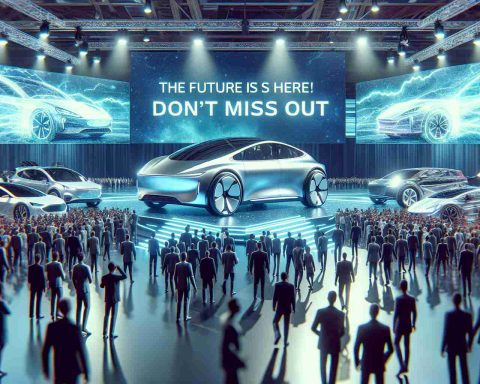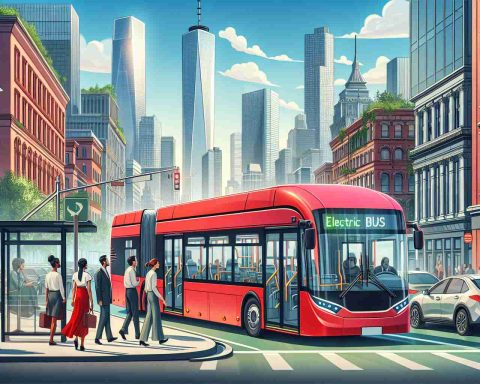The electric bus is not just a simple upgrade; it’s a radical transformation in public transportation, embodying the future of urban mobility. As cities worldwide grapple with pollution and climate change challenges, electric buses emerge as a beacon of hope, promising a cleaner, quieter, and more efficient urban experience.
Silent Streets, Cleaner Air
Traditional buses contribute significantly to urban pollution, but electric buses are changing that narrative. They operate with zero emissions, dramatically reducing the carbon footprint of public transport. This shift not only promises cleaner air but also aligns with global carbon reduction goals.
Advancements in Battery Technology
Recent innovations in battery technology are making electric buses more viable than ever. Compact, high-efficiency batteries now support longer routes with faster charging times, breaking barriers that once hindered wider adoption. Leading companies are exploring solid-state batteries, which offer enhanced safety and more power.
Smart Integration with Urban Infrastructure
Future-ready electric buses are being designed to seamlessly integrate with smart city infrastructure. Innovations like vehicle-to-everything (V2X) communication enable buses to interact with traffic systems, optimising routes and saving energy. This technology not only enhances operational efficiency but also minimises commute times for passengers.
Investments in electric bus systems are multiplying as governments and private sectors recognise their transformative potential. As the technology advances and infrastructure grows, electric buses are set to redefine urban transport, signalling a promising step towards sustainable cities. The electric bus is not just a vehicle; it’s an emblem of innovation and environmental stewardship.
The Future of Public Transportation: Innovations and Insights on Electric Buses
Electric buses are more than just vehicles; they symbolise a crucial shift in the narrative of urban transportation. By adopting this technology, cities are embarking on a journey towards achieving cleaner, quieter, and more efficient public transit systems. Below, we delve into new insights and emerging trends in the electric bus sector.
Key Features and Innovations
1. Revolutionary Charging Solutions:
Recent developments have introduced wireless charging technology for electric buses. This feature allows for on-route charging, utilising embedded road infrastructure to power buses as they travel. Such advancements can significantly extend operational times and reduce downtime.
2. Modular Design and Flexibility:
Electric buses are increasingly being built with modular configurations, allowing parts like battery packs and drive systems to be swapped or upgraded with ease. This modularity results in more adaptable fleet management and longer service life for the buses.
3. Enhanced Passenger Experience:
The new designs focus significantly on passenger comfort and convenience. Electric buses now come equipped with features such as Wi-Fi connectivity, advanced air filtration systems, and real-time passenger information displays. These elements make for a more enjoyable and informative commute.
Emerging Controversies
While electric buses promise multiple benefits, they face scrutiny over the sourcing and disposal of battery components. The extraction of lithium and cobalt, essential for battery manufacturing, raises ethical and environmental concerns. Efforts are underway to develop sustainable mining practices and enhance recycling processes, although solutions remain a work in progress.
Market Analysis and Trends
The electric bus market is projected to grow exponentially over the next decade. Analysts predict a surge in both manufacturing capacity and global deployment, driven by declining battery costs and supportive governmental policies. China’s dominance in this sector continues, but significant growth is expected in European and North American markets as well.
FAQs About Electric Buses
– How do electric buses contribute to reducing noise pollution?
Electric buses operate considerably quieter than their diesel counterparts, which minimises noise pollution in densely populated urban areas.
– What are the long-term cost implications for cities implementing electric bus systems?
Although the initial investment in electric buses is higher, cities benefit from lower maintenance and fuel costs, resulting in substantial savings over the vehicle’s lifetime.
If you are interested in more information about electric buses and sustainable urban transport, refer to Clean Energy Future for further reading.
Predictions for the Future
By 2030, the prevalence of electric buses is expected to comprehensively redefine urban landscapes worldwide. Municipal transit systems will likely prioritise electric buses in their fleets with increased adoption, driven by technological advances, economic incentives, and an urgent need to combat urban pollution.
In conclusion, electric buses are not merely a fleeting trend but an integral component of future sustainable cities. Their adoption represents a pivotal movement towards minimising urban impact and enhancing the quality of urban life. As technology continues to progress, these buses will surely play a critical role in the future of public transportation.








